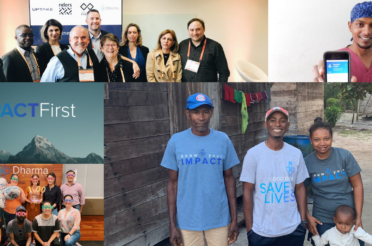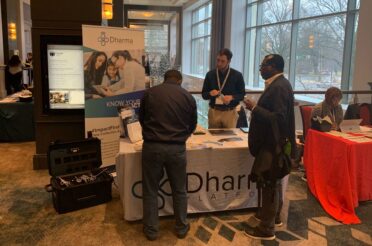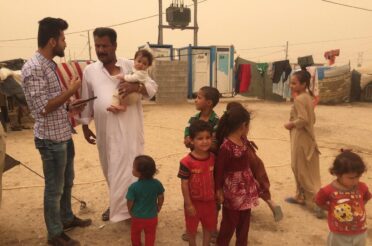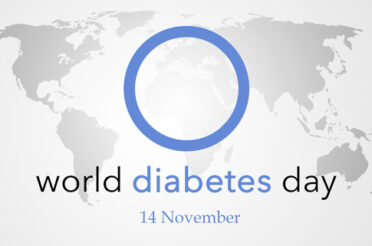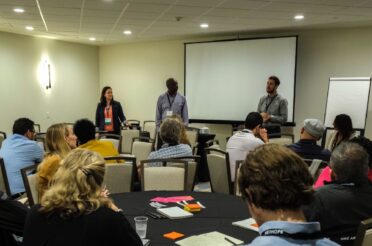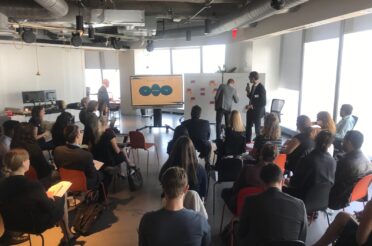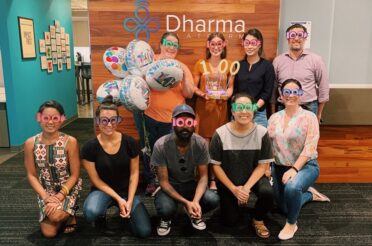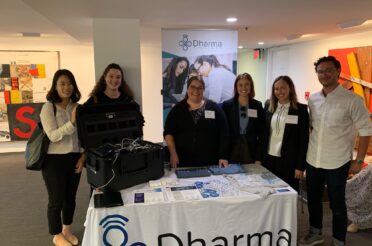Each year on August 19th, the UN World Humanitarian Day (WHD) pays tribute to aid workers who risk their lives in humanitarian service. This year’s WHD 2019 celebrates and honors the work of women humanitarians in crises throughout the world. Uniquely positioned to reach and assist women and girls, women humanitarians constitute a significant percentage of frontline responders who risk their own lives to save the lives of others. Under difficult conditions, women humanitarians protect human rights, dignity, and bring hope to others. In support of this year’s World Humanitarian Day, we asked two of Dharma Platform’s former humanitarian workers, Katy Pullen (Head of Operations/EMEA) and Dr. David Barros (VP Solutions), to share some thoughts on what supporting #WomenHumanitarians means to them.
As a woman, what made you want to become a humanitarian?
Katy: Born during the time of The Troubles in Northern Ireland, I grew up watching the vital role of women in conflict and peacebuilding. Aged 21, with the Good Friday Agreement fresh in my memory, I joined one of the UN’s first Women, Peace & Security initiatives in the Pacific. The breadth of the impact of conflict on women in Papua New Guinea and the Solomon Islands left a lasting impression, fueling a passion to protect and promote the rights of women and girls everywhere.
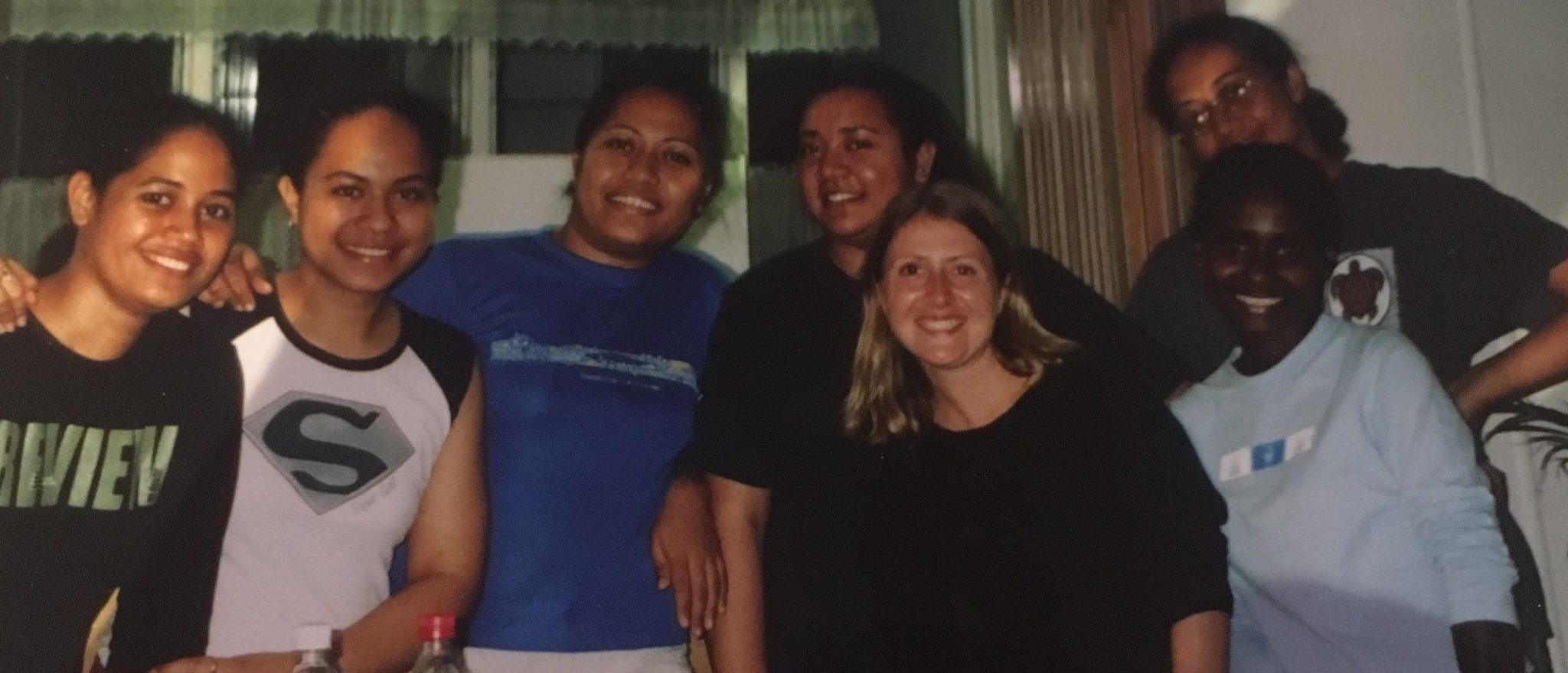
As a woman, what were some of the challenges you faced working in humanitarian contexts and how did you strive to overcome those?
Katy: As a female aid worker, I learned three things fast: (1) male colleagues got taken more seriously; (2) if I had a compelling dataset it was harder for those in the room to ignore me; (3) if I had a compelling dataset AND male allies in the room I stood a decent chance of being heard. “Engaging Men as Partners” wasn’t just a catchy title for a UN-funded reproductive health program, it became a key strategy for overcoming the gender-based challenges I faced daily. The lesson: without quality, timely, disaggregated data, I stood no chance of making an impact on my audience. Data brings visibility to the otherwise unseen and even a small sample size can be data-rich. The recent article, Praise for female aid workers rings hollow when harassment is pervasive, published by The Guardian sheds light on the stark realities faced by female aid workers from a survey of just 600 women humanitarians. For #WomenHumanitarians, I believe data remains our challenge but also our opportunity.
As a humanitarian doctor who’s worked alongside female aid workers, what positive role do you think men can play working in these contexts?
David: I take my cue from one of my earliest experiences as a medical doctor stationed in Chenalhó, a small village in the Chiapas highlands of México. The community of Chenalhó is among the poorest, most marginalized in México; a place rooted in the history and strife of Indigenous peoples. It was the first time I saw that wherever the consequences of injustice and the effects of material deprivation can be found, those that tend to suffer the most are women, at the hands of men. And yet, I soon realized that if one is looking for resiliency, strength, and the knowledge necessary for understanding how to rebuild a community, the best place to start was by listening to the women of the community.
The effect seems to hold true in other settings where I’ve delivered medical and humanitarian care around the world, like South Sudan, Lebanon, and Iraq. The effects of wealth and social inequality are widespread, shared by both men and women. Yet women carry a double burden: that which they share with men, and that produced by men. Domestic abuse, violence, and discrimination are ubiquitous; felt by the women of these communities and by the women humanitarians working in them.
In light of this, perhaps it’s not surprising to find that the best partners and most successful agents of change I’ve worked alongside in humanitarian aid settings have been women. In Chenalhó, I had the great opportunity to collaborate with a group of women from the community. Together we endeavored to change local policy, clean public spaces, rid the river of trash, separate refuse, improve the school’s curriculum to include health education, and myriad other initiatives to grant the town the designation of “healthy town.”
When I think of women humanitarians, I can’t help but think about that group of women in Chenalhó. In the face of disease, violence, loss, and fear, these women were the backbone on which this community was shaped and rebuilt. So what positive role can men play in these contexts? We can listen to women. We can support action based on women’s insight. My experiences have shown me there is no stronger force than a group of women committed to a cause. We must learn from them, engage with them, and work to empower them. We cannot make progress when women humanitarians are not given equal opportunity as their male counterparts to facilitate positive change and make an impact.
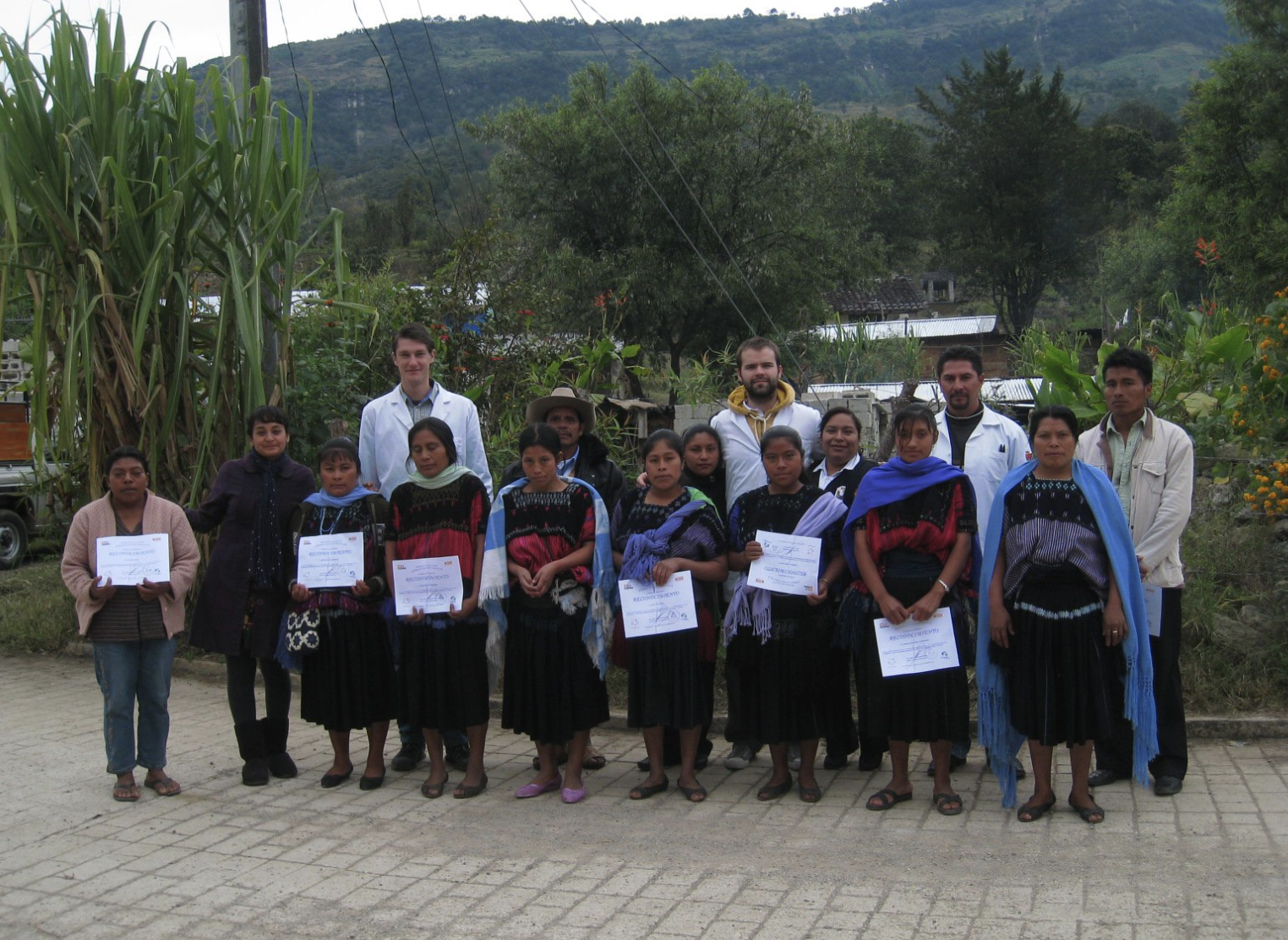
How did these experiences influence your decision to join Dharma Platform?
Katy: The mission behind Dharma Platform seeks to solve one of the hardest issues I faced as a female aid worker: the use of robust data to convince decision-makers of where the greatest areas of need are, and how these should be prioritized based on real-time information, not bias.
David: As a physician and humanitarian worker, many information systems I’ve had to rely on in the past have been too fragmented, unreliable or quite frankly, just poorly thought out. I’ve experienced how some of these systems have contributed to poor health system responses like the H1N1 Flu in Mexico, inadequate coordination during a cholera outbreak in South Sudan, or poor resource planning as the sectarian conflict unfolded in the Middle East. With the current market ecosystem of data management solutions, data management should be the means by which avoidable mortality and morbidity are curtailed. There is no reason to be beholden to bad data management practices.
What positive role can data play in supporting women humanitarians at work around the world?
Katy: At Dharma Platform, we believe good data makes the invisible, visible. So far in 2019, some 156 aid workers have been attacked on the job, with 57 killed, 59 wounded and 40 kidnapped. The actual number is likely far higher due to underreporting. And yet, we don’t know how many women humanitarians have been affected. Gender-disaggregated data doesn’t just support women humanitarians at work, it’s essential if women are to be seen and heard.


